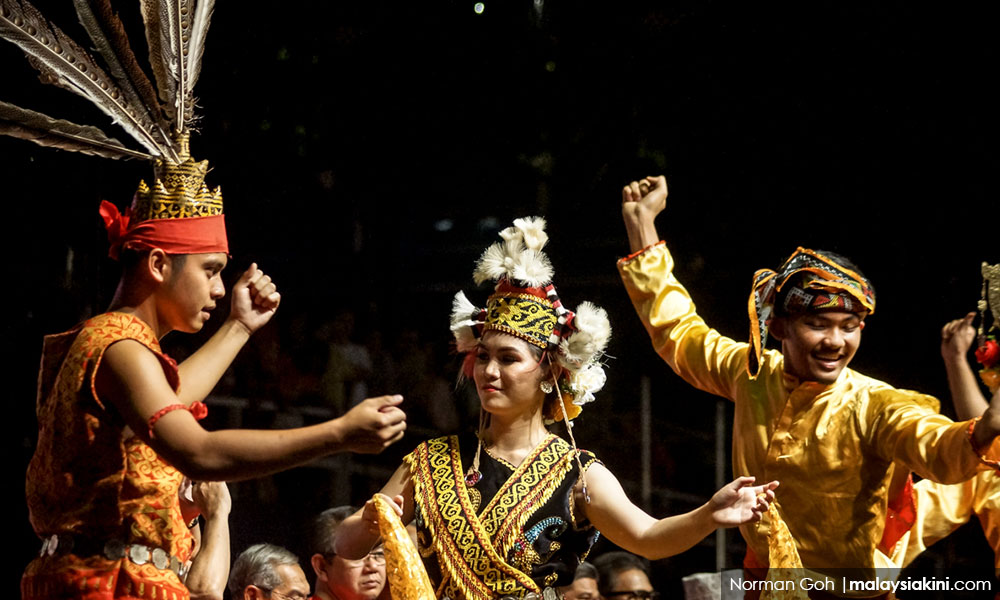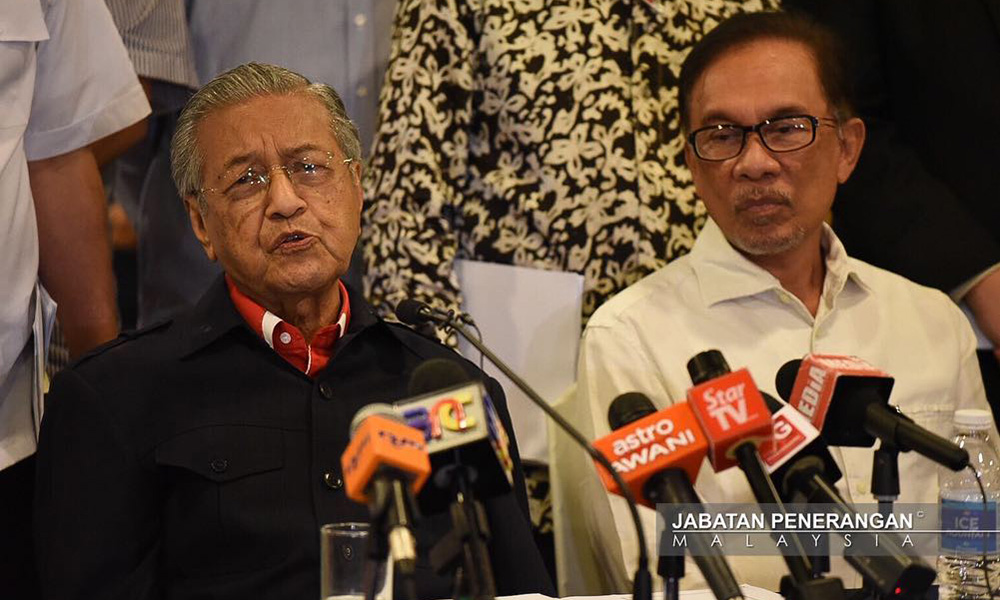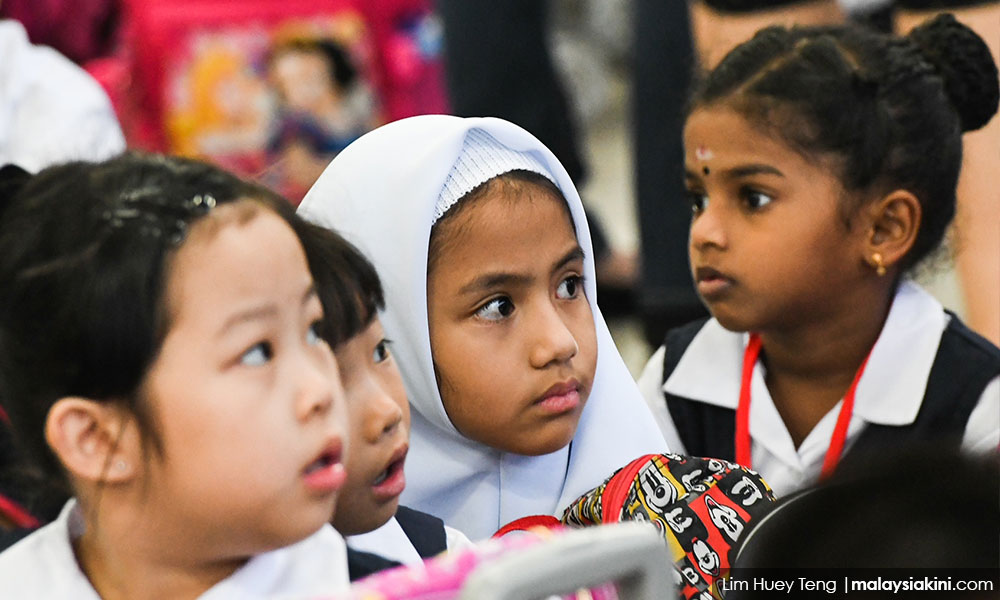COMMENT | For many years we have watched many of our friends leave the country or the children of many friends find jobs in countries like Singapore, Australia, UK, US and Canada.
Most of them left for better-paying jobs. There was also disillusionment and despair at the direction our politics was taking.
Chinese percentage in Malaysia’s population dropped to 23 percent while Indians to seven percent.
Non-Malays seemed to have slowly lost their sense of connection with the country and their participation in the government. Malays were dominant in the civil service, the police and the armed forces.
Many Chinese children were enrolled in Chinese schools and likewise, Malays in Islamic schools. There were exclusive elite boarding schools for Malays. And there are 160 International schools catering to the middle class.
At the tertiary level, most Malays attended public universities and the Chinese mostly attend private colleges, forking out a large amount for tuition fees.
Each race appeared to go their own way. With the Chinese generally creating a parallel universe for themselves while the Indians subsisted on the fringes taking what was allowed them.
Some did well in professional careers and some did well in business. Most were marginalised. Indians became synonymous with gangs and violent crime.
Sarawakians and Sabahans saw little prosperity with Malaysia - abandoned by the Federal Government and betrayed by their own leaders. Over the years, they have become the poorest of the poor.

Corruption became endemic. A feeding frenzy developed. And every man took what he could get. Or so it seemed. Race and religious extremism dominated our politics. Harsh laws were used to deal with dissent.
Winds of change on May 9
In GE14, a massive challenge was launched with former foes coming together in common cause to fight BN.
And they were successful. It was an unexpected victory. The people were overjoyed. Well - at least some of them were. A new government was installed.
Very quickly it was discovered that the scale of wrongdoing was much bigger than anyone thought. Our public debt (at least on a broad definition) exceeded one trillion ringgit and our economy was in trouble.
Investigations led to many charges being levied on some former leaders.
The promised reforms have been slow in coming. It was first said that many reforms required a constitutional amendment and that Harapan did not have the required two-thirds majority.
Then it was said that some reforms were sensitive to the Malays and should be brought about slowly. It became clear after a while that not all in Harapan were committed to all of the pledges made.
There were also internal conflicts within PKR and the DAP that threatened the coalition. The Azmin Ali/Rafizi Ramli fight was seen by some to be a Mahathir/Anwar Ibrahim proxy fight.

DAP grassroots did not want Zairil Khir Johari and P Ramasamy in Penang nor Tony Pua in Selangor. And the threatened crossovers of many Umno MPs to Bersatu caused a huge furore in the other coalition members and among the public.
And then we had the humiliating withdrawal on the International Convention on the Elimination of All Forms of Racial Discrimination (Icerd) and the Seafield temple incident. Both demonstrated how easy it is for the opposition to stir up racial or religious sentiments.
Moving forward
Notwithstanding these problems, we are better off today than we were before GE14. All accept that more time is required to convince the unconvinced that good governance will result in better lives for everyone. And that multiracial government is a good thing. And that racial and religious interaction will not result in the Malay race and Islam being undermined.
There is a need for more speed and transparency on institutional reforms. What is happening to the recommendations of the Council of Eminent Persons and the Institutional Reforms Committee?
It is also clear it the public that some ministers are struggling with their responsibilities. Education is a key institution requiring radical reform. There is no sign of that happening. There is tinkering at the edges when what is required is root and branch reform.

What is happening with retraining of workers to increase productivity? What is happening with English Language proficiency? What is happening to affordable housing?
The government appears to be very much on the defensive. The opposition have proved to be quite effective in playing up Malay fears.
The government must move to the offensive. They must write their own narrative - what is good about the new government. It cannot be the message that we are the same as before.
All should be better off with new policies and programmes with the new government. Explain why the new programmes and new policies will work for the betterment of all.
We have seen in recent weeks, messages from some of the rulers that are positive and encouraging. Convince all the rulers that the changes are good for the people. They could speak for the new government.
Local government will bring about more visible change more quickly then anything else. Just establish clear guidelines on open tenders and proper vetting processes and also make the MACC more effective.
2019 will be the second year of the new government. The people expect a lot more from the government.
Bring about the reforms required to transform this nation into the roaring tiger it once threatened to become. With all the races participating in the process.
Make our diversity work for us. Acknowledge the talents of all our people.
DAVID DASS is a lawyer and Malaysiakini subscriber.
The views expressed here are those of the author/contributor and do not necessarily represent the views of Malaysiakini.

